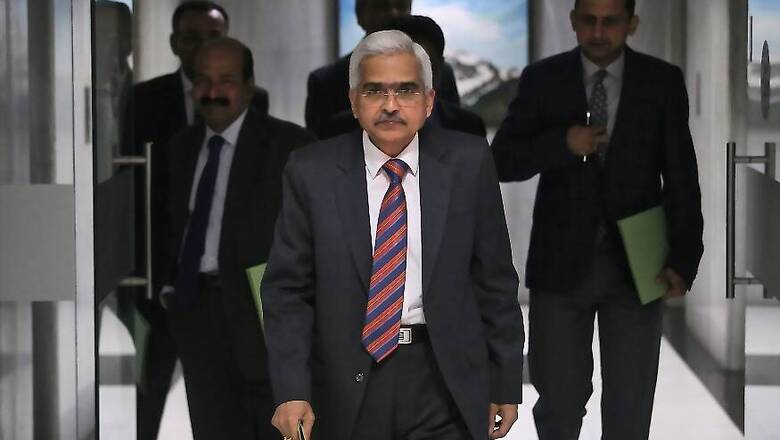
views
New Delhi: The Reserve Bank of India Thursday cut benchmark interest rate by 0.25 per cent for the second time in a row to bring interest rate to the lowest level in one year on softening inflation. The rate cut was widely expected to boost the economy.
The central bank, however, kept monetary policy stance at 'neutral'. It lowered its economic growth forecast to 7.2 percent for the 2019/20 April-March fiscal year, from the February view of 7.4 percent.
In the second policy review under Governor Shaktikanta Das, the six-member Monetary Policy Committee voted 4:2 in favour of the rate cut. The benchmark interest rate was cut by 0.25 per cent to 6 per cent, a move that will result in lower cost of borrowing for the banks that are expected to transmit the same to individuals and corporates.
The RBI had on February 7 had last cut interest rate to 6.25 per cent from 6.5 per cent. Last time repo rate stood at 6 per cent was in April 2018.
The rate cut is in consonance of achieving the medium term objective of maintaining inflation at the 4 per cent level while supporting growth, RBI said in a statement.
Several analysts, however, believed that country's weakening economic growth and subdued inflation outlook warrant a larger reduction but expected the RBI to remain cautious given uncertainty over who will lead the government after the coming election and what their fiscal policy will be.
Campaigning for votes, political parties have been promising dole-outs including direct cash payments to poor people if they win power, stoking potential inflation fears.
The inflation outlook could also be upset by the perennial risk of sharply higher food prices if the monsoon season rains disappoint, as has been predicted by Skymet.
While the central bank projected retail inflation at 3.8 percent by January-March 2020 - within its target of 4 percent - it also warned of the upside risks to price pressures if food and fuel prices rose abruptly, or if fiscal deficits overshot targets.
Annual consumer inflation was just 2.57 percent in February following five months of deflation in food prices.
Sluggish private investment and a weakening rural economy pulled India's economic growth down to 6.6 percent in the December quarter, its slowest in five quarters, while the unemployment rate hit multi-decades high.
The RBI highlighted the need to boost domestic growth due to headwinds "on the global front".
"The need is to strengthen domestic growth impulses by spurring private investment which has remained sluggish," the RBI wrote in the policy statement.
The underperforming economy could hamper Prime Minister Narendra Modi's prospects of getting re-elected for a second term in a looming general election.



















Comments
0 comment